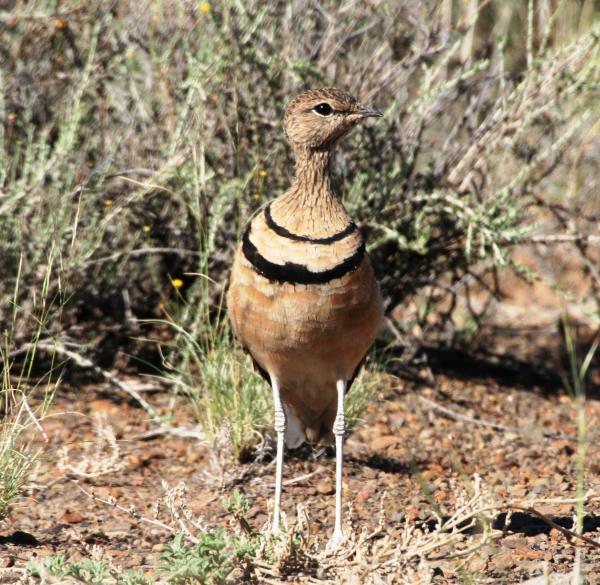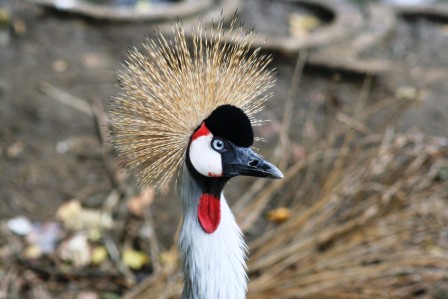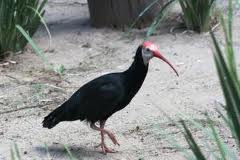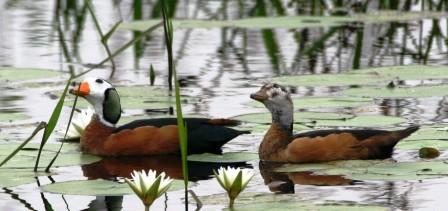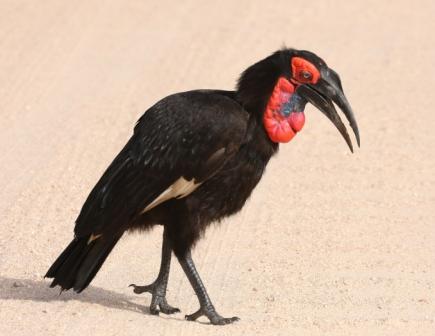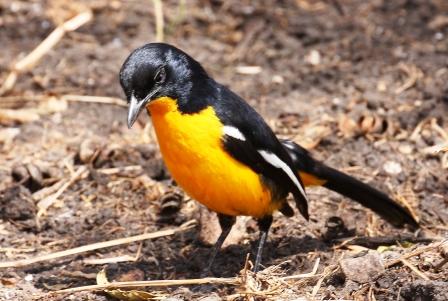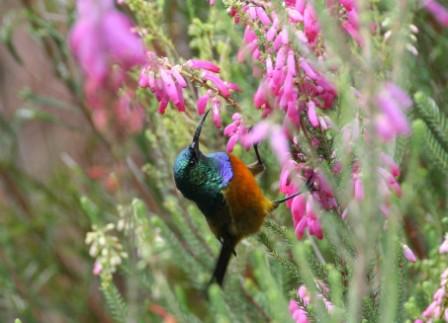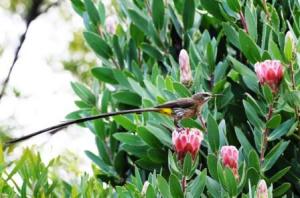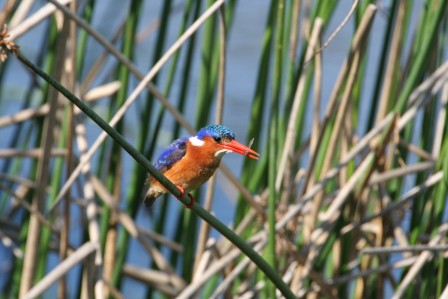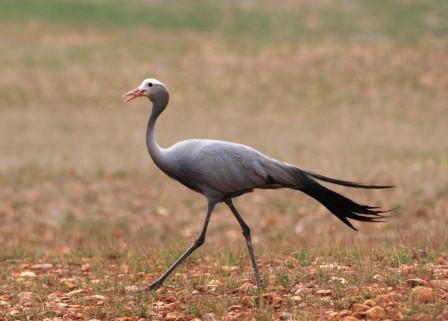|
|
JOIN OUR MAILING LIST |
|
Newsletter / Blog 2011-06-10 Great News - Pale-headed Brush-Finch (Atlapetes pallidiceps) Today, one of the world’s rarest birds passed a key milestone – the Pale-headed Brush-Finch (Atlapetes pallidiceps) was downlisted from Critically Endangered to Endangered on the IUCN Red List of globally threatened birds after of more than a decade of sustained conservation action.
The announcement came following news that the brush-finch has increased in number from fewer than 40 to over 100 pairs today thanks to an international conservation collaboration involving Ecuador’s Fundación Jocotoco, the U.S.-based American Bird Conservancy (ABC), World Land Trust-U.S and others.
“We are indebted to our many partners and individual donors in making these remarkable gains,” said Zoltan Waliczky, Executive Director of Fundación Jocotoco. “For a long time, everyone thought that this bird was extinct. When it was rediscovered in 1998, conservationists realized we had been handed a unique second chance and were determined not to waste it. Sustained, focused international cooperation is what has made the difference.”
“While the news that the Pale-headed Brush-Finch is being downlisted is encouraging, it by no means signifies the end of the struggle to save it, nor an opportunity to relax. Rather it proves that we can succeed given sufficient resources, and should serve as a call to redouble our efforts,” said Sara Lara, ABC’s Vice President of International Programs. “Any species whose entire global range is limited to just one site of a few hundred acres faces particularly difficult challenges. This bird still perches precariously on the knife edge between survival and extinction, and its survival totally depends on the continuing conservation actions.”
The Pale-headed Brush-Finch has likely always been a rare bird with a tiny range, restricted to two arid rainshadow valleys in the Andes of southern Ecuador. In the late 1960s, however, agriculture began to destroy its limited habitat, and the species was not seen for more than 30 years.
Then, in 1998, ABC funded an expedition led by experts from Jocotoco and Aves y Conservación that found a tiny population of the brush-finch in a 60-acre patch of scrub woodland in the Río Yunguilla Valley near Girón. Fundación Jocotoco moved quickly to purchase the land, establishing the Yunguilla Reserve. Several years of intensive research revealed that the brush-finch population was suffering not only from habitat degradation, but also from parasitism by Shiny Cowbirds, the population of which had increased due to fragmentation of the land by agriculture and the increased food supply associated with increasing agriculture.
Following establishment of the reserve, and with management of the cowbirds and restoration of the habitat, the brush-finch population began to slowly increase. As small land parcels adjacent to the reserve became available, they were purchased by Jocotoco thanks to the generosity of several benefactors, including the Barakat Foundation and Robert Wilson. Today, the area under active management stands at more than 370 acres, and the Yungilla Reserve is recognized by the Alliance for Zero Extinction as protecting vital remaining habitat for the species. Such a conservation achievement is exceptional. On this year’s IUCN list, only two species of birds, the Pale-headed Brush-finch and Campbell Islands Teal (Anas nesiotis) are down-listed for conservation reasons. All the other species that are being down-listed simply turned out to be more common than previously thought. The brush-finch numbers continue to climb, but the Yunguilla reserve only has room for 150 pairs.
The Yunguilla reserve is also home to the threatened Little Woodstar (Chaetocercus bombus) and the rare Buff-fronted Owl (Aegolius harrisii). Apart from birds, the reserve is also important for amphibians given its unique location bordering several different ecological zones. Two new species of frogs have recently been discovered at the site by Ecuadorian experts. |
| Back | Back to top |
 |  | Cape Town Tourism  |
|||||||||||||

